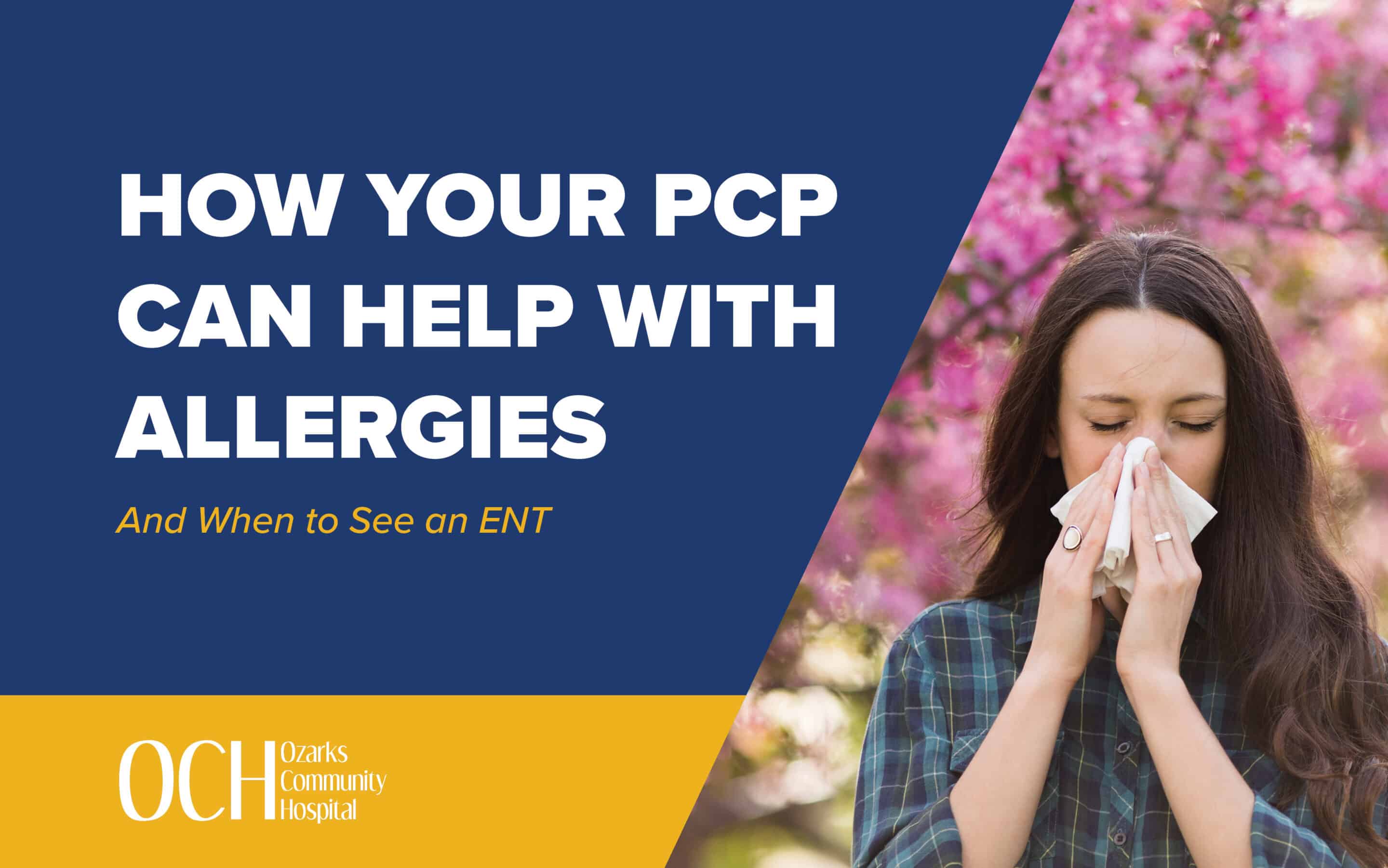
How Your Primary Care Provider Can Help with Allergies—and When to See an ENT
Spring is in the air, and so is pollen, dust, and other allergens that can leave you feeling miserable. If you suffer from seasonal or year-round allergies, you may be wondering what your primary care provider (PCP) can do to help. We spoke with OCH’s Sofia Hoces, FNP-C, to get some insight into common allergies and the best course of action when symptoms strike.
How Can Your PCP Help?
The good news is that your PCP has several tools to help manage your allergies. According to Hoces, treatment depends on how allergies are affecting you. “Some of the most common and effective treatments include steroid nasal sprays, which can significantly reduce inflammation and congestion. They can be used at home but may also be administered in-office if necessary. Oral antihistamines such as Claritin or Zyrtec help block histamine, the chemical responsible for allergy symptoms, and are easily accessible. Saline nasal sprays are also highly recommended, as they help flush out allergens and provide relief from nasal congestion. For those with severe allergies, a single Kenalog injection (a corticosteroid) can provide long-lasting relief. This shot is typically administered once per allergy season, such as in the spring or fall” advises Hoces.
When Allergies Lead to Sinus Infections
However, if allergies go unchecked, they can sometimes develop into sinus infections. Hoces notes that sinus infections are often bacterial and can be treated effectively with antibiotics. However, preventing infections is key. Taking proactive steps, such as using a saline rinse, staying hydrated, and controlling exposure to allergens can reduce the likelihood of complications.
Preventative Measures
One of the best ways to manage allergies is to take preventative action. Hoces recommends checking the pollen count weekly to be aware of peak allergy seasons. Identifying your triggers, whether it’s dust mites, pet dander, or pollen, is crucial. Maintaining a clean environment by frequently washing bedding, wearing a mask while cleaning or gardening, and using air purifiers can help limit exposure to allergens.
When to Seek an ENT Referral
If you’ve tried all of these measures and are still struggling with symptoms, it may be time to see an Ear, Nose, and Throat (ENT) specialist. Hoces advises that an ENT can determine whether an underlying condition—such as nasal polyps or chronic sinusitis—is contributing to persistent allergy symptoms.
Don’t Suffer in Silence
If you’re battling allergies, don’t hesitate to make an appointment with your PCP. With the right approach, you may find more relief than you thought possible. Whether it’s a nasal spray, antihistamines, or an in-office treatment, your provider can help you breathe easier this allergy season!
